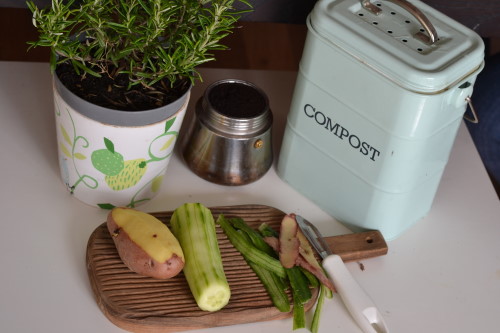While losing weight isn’t always as simple as “eat fewer calories than you burn,” reducing the number of calories is an important part of the weight-loss equation. And it explains why some people seek foods that are very low in calories or even zero-calorie foods.
Calories provide the energy our bodies need to move, think, digest, etc. Yet, with so many food options around us all day, every day, it’s easy to consume too many. Filling up your plate with foods that are lower in calories along with nutrient- yet calorie-rich foods, like quality meats, eggs, nuts and seeds, olive oil, and avocados, can help you keep calories in check. This method allows you to get the energy and nutrients your body needs and the volume you want without getting weighed down with excess calories.
BREAKING: This Keeps Your Blood Sugar Below 100 - Even When You're Eating Sweets!
Do Zero-Calorie Foods Even Exist?
Apart from water, the only zero-calorie foods are typically artificial, such as sugar substitutes, many of which have their own concerns and may not be all that beneficial to a healthy weight-loss diet.
While some vegetables, fruits, and other foods have been purported to take more calories to digest than they contain (due to the thermic effect of food), the reality is a bit different. Foods like celery contain lots of water and fiber. In theory, the process of chewing up and then digesting the celery would result in consuming no to negative calories.
In reality, only 5 to 10% of the energy consumed goes to digesting the foods we eat. And no studies from reputable sources have actually found any foods to provide no calories. That said, many of these foods can provide a lot of volume without a lot of calories, so you feel fuller, get a good dose of nutrition, yet keep calorie counts lower.
Very Low-Calorie Foods to Consume
So, what foods can you pile up on your plate to fill you up without going over your daily calorie recommendations? Here are 38 low-calorie foods to freely add to your menu:
1. Tea isn’t technically a food, but as it comes in at zero calories per cup, it’s a good one to start with. Enjoyed hot or cold, tea is a good source of healthy polyphenols. If you’re not sipping on water, tea is a great alternative and comes in a wide range of flavors with black, green, white, and herbal varieties. Try sipping on a cup when you typically snack to help fight off cravings.
2. Coffee—I know, still not a food—is another calorie-free drink that helps supercharge the morning with extra energy without any calories. That is, as long as you don’t overload it with calorie-filled creamers or sweeteners. A half tablespoon of Half & Half, though, adds a mere ten calories, and some stevia drops can give it the flavor of an expensive latte without the calorie or cash cost.
3. Watercress is an extremely low-calorie food—just four calories in a cup of chopped watercress—due to its high-water content. However, it’s not just water. It also provides nutrients, including vitamins A, C, E, and K, as well as calcium.
4. Arugula is a great addition to a salad as it adds a lot of potent flavor with few calories. One cup provides just five calories, making it a virtually zero-calorie food.
5. Lettuce is another nearly zero-calorie food that comes in with just five per cup. It’s also rich in water, fiber, and nutrients like B vitamins. The darker the variety of lettuce, in general, the higher in nutrients. Just watch your salad dressing choice and serving size as too much can weigh down your lettuce and add too many excess calories.
6. Strawberries are a delicious fruit that fits any diet plan. They’re sweet, versatile, and filled with nutrients like vitamin C, manganese, fiber, and antioxidants, yet low in sugar and calories. One strawberry is just six calories, while a cup of berries (which also includes blueberries and blackberries) provides just 64 calories.
7. Chard may look like it’s related to kale, but it’s actually a member of the beet family. It’s another dark, leafy green that packs a lot of nutrients in a small space. For example, it’s a great source of vitamin K (with 249% of the daily value)! Plus, a cup contains just seven calories.
8. Lychees may not be a familiar food for many of us, but this tropical fruit packs in a lot of vitamin C and other vitamins, minerals, and antioxidants. They’re also water-rich, and one lychee provides only seven calories.
9. Spinach is a great way to add a lot of nutrition and volume to your eating with nearly zero calories. It’s rich in iron, folic acid, and carotenoids. Use it as a salad base or add a handful to a morning smoothie or omelet for big benefits with only seven calories per cup.
10. Cucumbers are high in water as well as fiber, so they’re a naturally refreshing, low-calorie vegetable. Plus, their mild flavor combines well with other vegetables and fruits. If you load up a salad with cucumbers, you’ll get a lot of volume with very few calories. A half-cup serving provides just eight calories.
11. Alfalfa sprouts are the definition of small yet mighty. With a mere eight calories per cup, these nutrient powerhouses provide vitamin K, zinc, copper, and B vitamins.
12. Apricots are another nutrient-dense fruit, which provides vitamins C, E, K, and B vitamins. They’re also super low in calories, with each raw apricot coming in at a mere 16 calories.
13. Celery, okay, it’s not the zero-calorie food some people have proclaimed, but it is high in water, potassium, calcium, folate, vitamins A and K, and others. Yet a cup of chopped celery provides a mere 17 calories and a lot of refreshing crunch. Add it to your next salad (especially tuna or chicken salad), include it in stir-fries and other quick dishes, or top it with a light smear of peanut butter and maybe a few raisins for a healthy snack to take you back to childhood.
14. Radishes provide a lot of spice in a very small serving, along with nutrients like potassium, folate, and vitamin C. If you like big flavor with a big crunch, a one-cup bowl of sliced radishes provides just 18 calories.
15. Lemons and limes might not be something you typically consume whole, but like other citrus fruits, they pack a big punch when it comes to nutrients like fiber and vitamins. A full cup adds up to just 20 calories, but a squeeze of either is perfect for brightening up any dish or even adding a flavor punch when sliced and added to a pitcher of water.
16. Zucchini can be used in so many recipes, including some to replace noodles, and it’s a great alternative for higher-calorie foods. At just 20 calories per serving, zucchini is a rich source of potassium, vitamin C, and fiber.
17. Cabbage is a great addition to salads, the tasty topper for tacos, and the raw ingredient for sauerkraut, kimchi, and coleslaw. It comes in red, white, and green varieties and provides a delightful crunch when served raw. So, load up on this one as it’s got only 22 calories per cup raw! And depending on the brand or recipe, a couple of tablespoons of sauerkraut will only run around five calories + lots of great probiotics.
18. Tomatoes are rich in fiber and vitamins, including lycopene. They’re also a versatile and flavorful addition to just about any convenient dish—from tacos to burgers to spaghetti sauce to salads. And a whole medium-sized tomato has only 22 calories.
19. Fennel is a unique vegetable that provides a lot of flavor to any dish when added raw, roasted, or braised. It has an almost sweet, faint licorice-like taste. It’s also rich in vitamin C, potassium, and other nutrients yet provides just 27 calories per cup.
20. Green beans are another low-calorie option with just 31 per cup.
21. Clementines (aka, Cuties) shouldn’t be reserved only for the winter holidays. These miniature oranges are high in vitamin C and are so sweet and delicious. On a hot day, try one straight from the refrigerator or, better yet, peel it and section it to store in the freezer for a sweet, healthy dessert-like treat anytime. One clementine weighs in at a mere 35 calories.
22. Grapefruit is another popular “diet” food as it’s rich in nutrients, including antioxidants like vitamin C, folic acid, potassium, and other nutrients that have been shown to help support weight loss. Plus, they contain just 37 calories per half grapefruit. What a great way to start the day!
23. Watermelons are a rich source of vitamins A, C, and B6. They’re also one of the foods highest in the health-promoting nutrient lycopene (which also gives it its red color). A serving of 10 watermelon balls provides only 37 calories.
24. Asparagus is often recommended by nutritionists and fitness enthusiasts as a nutrient-dense food without a lot of calories. Weighing in at 38 calories per cup, asparagus provides high amounts of vitamin K, folate, and flavonoids, including asparagusic acid.
25. Cauliflower is one of the most popular veggies for good reason. Not only is it so versatile that it can be used in pasta dishes to replace the pasta and the sauce as well as a pizza crust or rice, but it’s also highly nutritious while being very low in calories. A full cup of cauliflower only counts up to 40 calories.
26. Papayas are another excellent source of vitamin C and fiber and contain just 43 calories per 100-gram serving.
27. Mushrooms, the nutrient-rich fungi, are gaining in popularity for their wealth of potential health benefits. They’re high in B vitamins, selenium, and other important nutrients. Some forms even work well for substituting meat or buns at the BBQ grill as they’re low in carbs and calories with just 44 per cooked cup. They’re also a great addition to omelets, salads, stews, and sauteed over a steak.
28. Jicama is another vegetable we should consider eating more of. The tuber vegetable offers a refreshing texture, similar to a crisp apple, that goes well in salads or by itself. It’s high in fiber, vitamin C, and potassium but not calories. A full cup provides just 49.
29. Kale, of course, is included on just about every healthy food list as it fits well into smoothies, salads, and vegetable dishes of every kind. This popular leafy green is rich in beta-carotene, vitamin C, vitamin K, manganese, and copper yet relatively low in calories with just 49 per cup.
30. Carrots provide a sweet crunch to any salad and can also be used in a wide variety of recipes. They’re rich in nutrients, including the carotenoids lutein and beta-carotene, which play a beneficial role in vision, balanced immune functioning, and more. Yet a full cup provides only 50 calories.
31. Beets are colorful root vegetables that are surprisingly versatile. Plus, they’re nutrient-rich, offering folate, manganese, and phytonutrients. These circulation-promoting, heart-healthy veggies come in with just 74 calories per cup.
32. Peppers can be hot, mild, or even sweet and spice up virtually any dish with flavor and nutrients with only about 60 calories in a cup.
33. Apples provide just 62 calories and are packed with nutrients like fiber (3 grams), vitamin C, potassium, and quercetin, a flavonoid.
34. Onions are one of the most commonly used foods if you cook at home and for good reason. They add powerful flavor to omelets, soups, stews, stir-fries, dips, sandwiches, salads, and so much more. In addition to their potent flavor, they provide plenty of fiber and nutrients with a mere 64 calories per cup.
TRENDING: Shed 42 lbs In 30 Days With This Simple Night-time Pill
35. Brussels sprouts are delicious when consumed raw or cooked. Another cruciferous vegetable (which looks like a miniature cabbage), these sprouts are high in vitamin C—with even more than broccoli—and provide only 70 calories per cup cooked.
36. Broccoli, chopping broccoli… One of the famous cruciferous vegetables that pack an incredible nutrient punch, broccoli provides 100% of your daily needs for vitamin C with a mere 54 calories. What’s more, this delicious green vegetable has been shown to help lower the risk of several diseases.
37. Raspberries are another sweet yet tart fruit high in vitamin C, fiber, manganese, and vitamin K. A full cup serving provides just 78 calories and can help cure a sweet craving.
38. Cherries are well-known for their potential health benefits as they provide vitamin C, potassium, fiber, and phytonutrients. A cup of cherries is a delightful summer snack and will only set you back by 95 calories.
There’s no need to follow some type of extreme zero-calorie foods diet to lose weight. Those types of foods likely don’t even exist in the wild. Foods that will, however, help fill you up with lots of volume yet surprisingly few calories are a wide range of vegetables and fruits. In fact, the list could go on for days with other options like sugar snap peas, okra, pumpkin, garlic, mango, turnips, olives, leeks, unsweetened cocoa powder, and more.
Combine those nutrient-dense, zero-calorie foods with quality proteins, healthy fats, and regular exercise for an overall healthy lifestyle that can help you lose weight without losing out on valuable nutrients.
It’s also worth noting that just adding these low-calorie foods to your diet won’t necessarily help you lose weight. For example, adding a side salad to your cheeseburger order will still provide more calories than eating just a cheeseburger. On the other hand, getting the side salad (with a dressing on the side) instead of French fries with your cheeseburger may help you cut calories from the meal as well as provide more filling fiber, which could keep you fuller for longer and, over time, support your weight-loss efforts.









